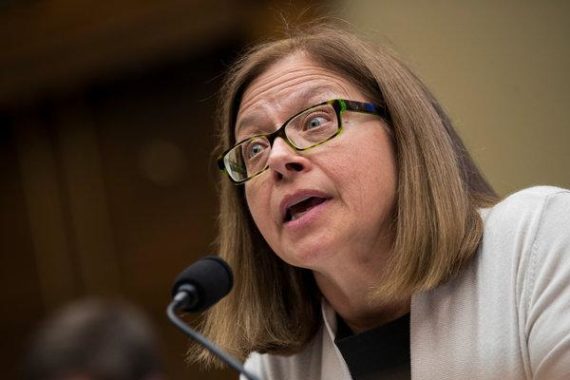
(12-28-18) Dr. Elinore McCance-Katz is my choice for the person who has had the biggest impact in mental health during 2018.
Appointed by the Trump administration in September 2017 as the first Assistant Secretary for Mental Health and Substance Use, Dr. McCance-Katz has dramatically changed the focus at the Substance Abuse and Mental Health Services Administration.
She has made serious mental illnesses a priority and has directed SAMHSA to create and fund programs based on clinical results and science.
Her leadership is a much needed breath of fresh air from the previous administrator who was harshly criticized by Congress for reportedly showing little interest in serious mental illnesses and whose leadership resulted in SAMHSA employees ranking morale inside their agency as among the lowest in the entire federal government.
SAMHSA received a budget increase of 35% under the Trump administration, allowing it to more than double the number of grants that it awarded in 2018 from 600 to 1,300. Simply distributing money is no solution, especially if it goes to wasteful programs, which is why one of Dr. McCance-Katz’s first orders was a thorough review of what constitutes an evidence based practice worthy of funding. Given that some so-called evidence based practices in the past were based on little or no real evidence, this was a major directional change. At the same time, SAMHSA streamlined its application review process, cutting the application from 25 pages to 10 and the number of questions for applicants from 25 to a mere 9 so that federal funds could be released more quickly to those programs that deserve them.
Making the process more vigilant, efficient and easier to use might not seem sexy, but awarding grants is how the federal government helps steer states. (For example, SAMHSA recently awarded $61.1 million for suicide prevention programs.) Having someone as assistant secretary who actually is making Americans with serious mental illnesses a prime concern is a godsend.






